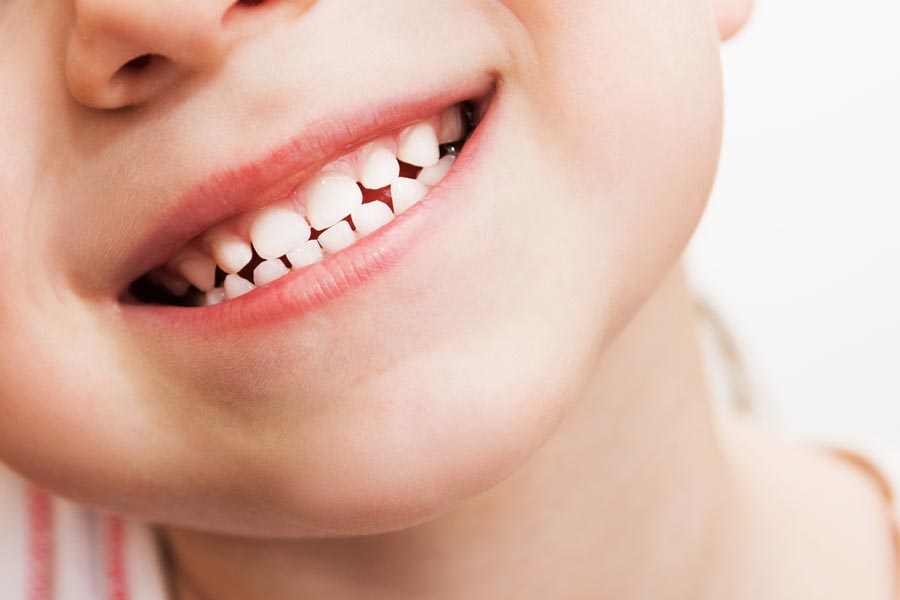
Teeth start to form even before you are born. Milk teeth or baby teeth start to form when the baby is in the womb but they come through (erupt) when the baby is between 6-12 months old.
Some babies are born with teeth. About 1 in every 2000 babies are born with ‘natal’ teeth. Natal teeth usually erupt on the bottom gums and tend to have weak roots; they are often removed to prevent problems with breast-feeding.
Too much fluoride when teeth are developing can cause mild mottling of permanent teeth known as enamel fluorosis. A young child who regularly swallows adult strength fluoride toothpaste instead of spitting it out may develop enamel fluorosis.
To avoid dental fluorosis:
- Do not use fluoride toothpaste in children under 18 months of age.
- Choose a low fluoride toothpaste for children aged between 18 months and 6 years of age.
- Apply only a smear of toothpaste onto the toothbrush and force it into the bristles.
- Ensure your child spits out the toothpaste after brushing.
- Store all toothpastes out of reach from children. Some children love the taste of toothpaste and will eat it if given the opportunity.
If your child’s permanent teeth have erupted with mottling, see your dentist who can suggest treatment to improve the look of the teeth.
Many healthy foods (such as fruit) contain high amounts of sugar. Starchy foods (such as bread, pasta and crackers) and milk products (including breast milk) consumed frequently can cause the growth of dental plaque, which is why you need to make sure your child’s teeth are cleaned morning and night.
